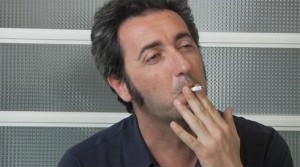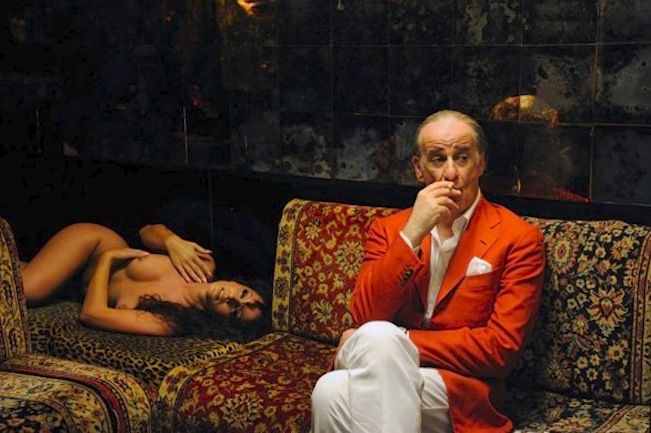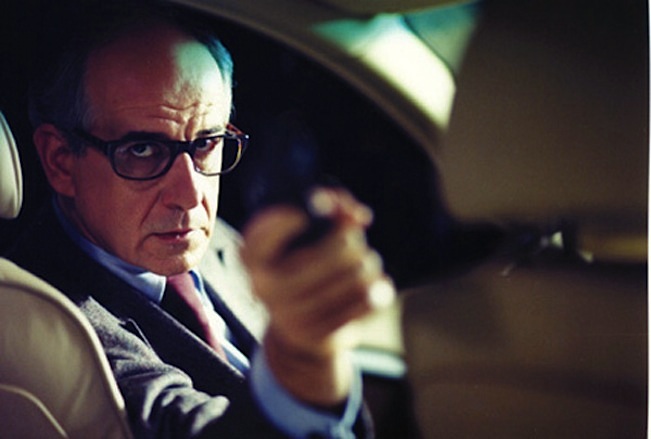By Jake Howell jake.howell@utoronto.ca
Countdown To Cannes: Paolo Sorrentino
PAOLO SORRENTINO
Background: Italian; born Naples, Italy, 1970.
 Known for / styles: Il Divo (2008), This Must Be The Place (2011), The Consequences of Love (2004); directing documentaries and narrative fiction, writing novels (Everybody’s Right, 2011), working with actor Toni Servillo and cinematographer Luca Bigazzi. Sorrentino and compatriot Matteo Garrone are sometimes credited for a revival in contemporary Italian cinema.
Known for / styles: Il Divo (2008), This Must Be The Place (2011), The Consequences of Love (2004); directing documentaries and narrative fiction, writing novels (Everybody’s Right, 2011), working with actor Toni Servillo and cinematographer Luca Bigazzi. Sorrentino and compatriot Matteo Garrone are sometimes credited for a revival in contemporary Italian cinema.
Notable accolades: Sorrentino has won two prizes at Cannes, including the Jury Prize (read: third place) for Il Divo and the Ecumenical Jury Prize for Sean Penn drama This Must Be The Place. The Ecumenical Jury prize is given to“works of artistic quality [that] reveal the mysterious depths of human beings… their hurts and failings as well as their hopes.” Outside of the Croisette, Sorrentino is also the owner of four David di Donatello figurines: three for The Consequences of Love (Best Film, Best Director, and Best Screenplay) and one for This Must Be The Place (Best Screenplay). Il Divo was nominated for a Best Make-up Oscar at the 82nd Academy Awards.
Previous Cannes appearances: Sorrentino has had three films in Competition: 2004’s The Consequences of Love, 2008’s Jury Prize-winning Il Divo, and 2011’s This Must Be The Place. In 2009, Sorrentino was named Jury President of the Un Certain Regard program.
 Film he’s bringing to Cannes: La Grande Bellezza (The Great Beauty), which follows “an aging writer who bitterly recollects his passionate, lost youth.” The leading cast includes Toni Servillo (marking the fifth time the actor has worked with Sorrentino) and Sabrina Ferilli. Capturing The Great Beauty is Sorrentino’s favorite cinematographer, Vulcain Prize-winner Luca Bigazzi.
Film he’s bringing to Cannes: La Grande Bellezza (The Great Beauty), which follows “an aging writer who bitterly recollects his passionate, lost youth.” The leading cast includes Toni Servillo (marking the fifth time the actor has worked with Sorrentino) and Sabrina Ferilli. Capturing The Great Beauty is Sorrentino’s favorite cinematographer, Vulcain Prize-winner Luca Bigazzi.
Could it win the Palme? It’s a tough call. At least half of the trailer for The Great Beauty looks and sounds like 2011 Palme winner The Tree of Life, with operatic music, poetic narration, and sweeping photography underlining the majesties of life. Even the narrative sounds familiar: Sean Penn spends much of The Tree of Life reflecting on the past. If The Great Beauty’s final product is as similar to The Tree of Life as it seems on paper, jury members may feel Sorrentino is trying to revisit someone else’s successful formula. If this early speculation is horribly off base, however, there’s still reason for Sorrentino to be hopeful in 2013—especially if we see a return to his own form. He came close to winning before.
 Why you should care: The Great Beauty sees Sorrentino back where he’s most comfortable: shooting in Italy with Italian dialogue. This Must Be The Place was an interesting English-language experiment, but the reception was mixed. It disappointed many who were eager to see new work from the man who made Il Divo. Sorrentino’s latest film looks strong—and with Matteo Garrone’s Reality behind it, Italian cinema can only get that much stronger when Grande Bellezza debuts locally May 21.
Why you should care: The Great Beauty sees Sorrentino back where he’s most comfortable: shooting in Italy with Italian dialogue. This Must Be The Place was an interesting English-language experiment, but the reception was mixed. It disappointed many who were eager to see new work from the man who made Il Divo. Sorrentino’s latest film looks strong—and with Matteo Garrone’s Reality behind it, Italian cinema can only get that much stronger when Grande Bellezza debuts locally May 21.















